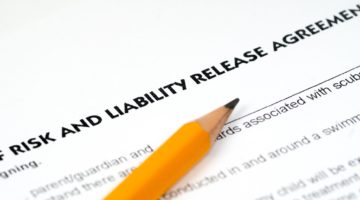On Monday, Governor Baker signed a temporary measure into law allowing notaries to notarize documents by videoconference during the current state of emergency. This means that Massachusetts residents can—among other things—sign wills, name health care proxies, and buy and sell real estate, without leaving home. Because the new law also allows witnesses to observe a signing remotely, even people isolated in health care facilities, unable to receive visitors, can now make necessary changes to their financial and estate plans using little more than a smartphone, tablet, or laptop.
From a signer’s perspective, notarizing documents remotely may be even simpler than visiting an attorney’s office. For a remote notarization, the signer(s), the notary, and any witnesses all join a videoconference, during which the notary will ask for permission to record the videoconference, verify identity, confirm that everyone is currently physically located in Massachusetts, and take note of everyone present in the room with the signer(s). The notary will need to either know signers personally or verify their identity by viewing a government-issued photo ID. (For real estate transactions, signers may also need a second form of ID, but a credit card or a utility bill from the last 60 days is good enough.)
After a notary has observed the signing of the document, the signers must send the signed document and a copy of their ID to the notary, who must store a recording of the videoconference and a copy of the ID for ten years. If the document is one which witnesses would sign, in addition to the person executing the document, such as a will, all parties can sign their own copies during the videoconference and then send the signed documents to the notary, who will combine them into a single document.
For most documents, the single-videoconference procedure described above is enough. A second videoconference is required for documents related to real estate transactions, such as deeds and mortgages. In those cases, once the notary receives the signed original, another videoconference is held so that the signer can verify to the notary that the document is the same one signed during the first videoconference. With real estate documents, the document will be notarized during the second conference.
Clients should also know that certain types of documents can only be notarized remotely by attorneys or paralegals who are also notaries. The two categories of documents subject to this restriction are documents related to the sale of real estate and (many) estate planning documents, including wills, nominations of guardians or conservators, durable powers of attorney, and health care proxies.
This temporary Remote Notarization Act will only remain in effect until three business days after Massachusetts’s state of emergency is lifted, but documents notarized under the Act will remain valid, just as if they had been notarized in person. In many cases, we are encouraging our clients to re-execute their documents in person once it is possible to do so, in order to minimize the possibility of any challenge to their validity at a later date. Taking advantage of remote notarization procedures may not be at the top of your pandemic to-do list, but it is now an option and may be worthwhile, especially for people who have difficulty getting to an attorney’s office, are quarantined, or those who are at elevated risk of infection.
If you have questions about estate planning, probate, trusts, and tax matters, please contact one of Conn Kavanaugh’s experienced estate planning lawyers.
Click here to subscribe to the blog and never miss an update!
Share with your network:

